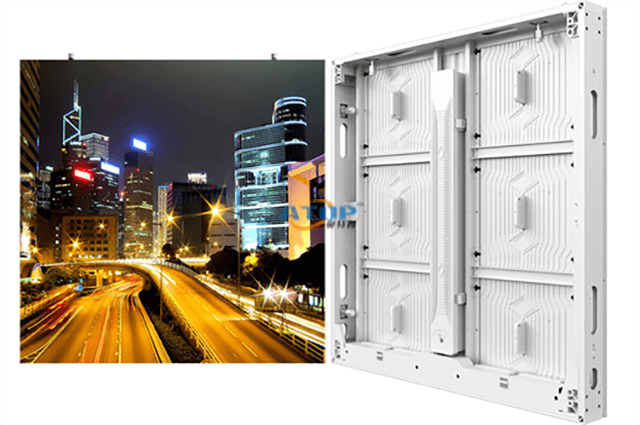Led cabinets, or LED screen frames, are the modular units on which a LED screen is assembled. Most LED screens are large or even gigantic, so it stands to reason that the most convenient method to assemble them is to divide the screen into smaller cabinets. When these cabinets are combined, we get the full surface of the screen. These cabinets vary in size, building materials and customization depending on the type of LED screen that you want to assemble.On the other hand, led display screen It also brings tangible benefits to everyone and feels useful. It is a model of the industry. https://www.atop-led.com/
The main function of the LED screen cabinet is to provide a structure to support and protect the LED module, and to provide an interface for power supply and signal transmission. The design of the LED screen cabinet usually takes into account factors such as heat dissipation, dust resistance, water resistance and earthquake resistance to ensure the normal operation and long life of the LED display.
standard led cabinet
What are the types of LED display cabinets?
LED display cabinets are screen frames. They are modular units on which we assemble the display screen. These display cabinets can vary in:
Size
Manufacturing material
Specifications depend on the type of display screen.
1.Classification of LED display cabinets based on size
There are different LED display sizes. Here are some common standard ones:
For outdoor fixed projects: 960〜960 mm, 1024〜1024 mm, 768〜768 mm.
For indoor fixed projects: 640〜480 mm, 640〜640 mm, 960〜480 mm.
For rental event projects: 500〜500 mm, 500〜1000 mm, 512〜512 mm, 576〜576 mm, 640〜640 mm.
960x960mm iron cabinet
640x640mm indoor led cabinet
500×500/1000mm rental cabinet
2.Classification of LED display cabinets based on manufacturing material
We can classify LED screen cabinets based on the material used in manufacturing. On this basis following are the types of LED screen cabinets:
Galvanized iron material
High-end die-casting aluminum alloy
Magnesium alloy
Let us briefly discuss each type of cabinet.
(1) Galvanized iron LED display cabinet:
It is one of the most common LED display cabinets. It has extensive use in outdoor LED screens. If we talk about its advantage, we must consider its good sealing ability. Moreover, it also offers affordable prices.
Every device, along with its advantages, also have some disadvantage. And these disadvantages include heavy weight and low accuracy compared to die-casting cabinets. We usually use these for large outdoor screens and billboards. It weighs about 38 kg/m2 for an outdoor iron cabinet.
iron cabinet
(2) Die-cast aluminum alloy:
We have already discussed the disadvantages of the iron cabinet. Unfortunately, these drawbacks do not support screens with small spacing needs.
So, the new materials grab the attention of the market. Among the latest materials, the die-cast is the most popular one.
After working on this material for years, we can now introduce lighter cabinets in the market.
It offers a range of advantages. These include lightweight, more reasonable, and high accuracy. Besides, it can realize seamless splicing.
The latest die-cast aluminum display screen has comprehensive optimization. It is one of the newest versions of the traditional display box. Rationalization occurs in both structure and performance.
It is actually for rental display screens. Besides, it is for fine pitch LED display. We make it with a patent and high-precision box. It has convenient disassembly and assembly. It has incredibly convenient maintenance. Moreover, there is a list of its advantages which includes: